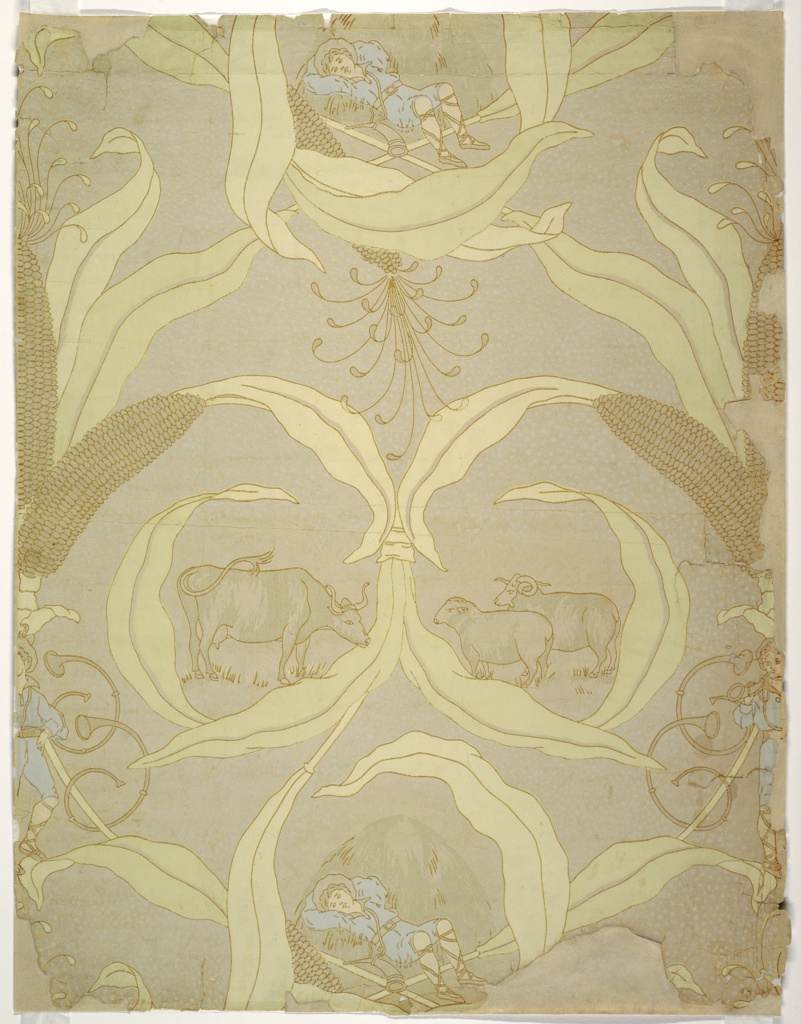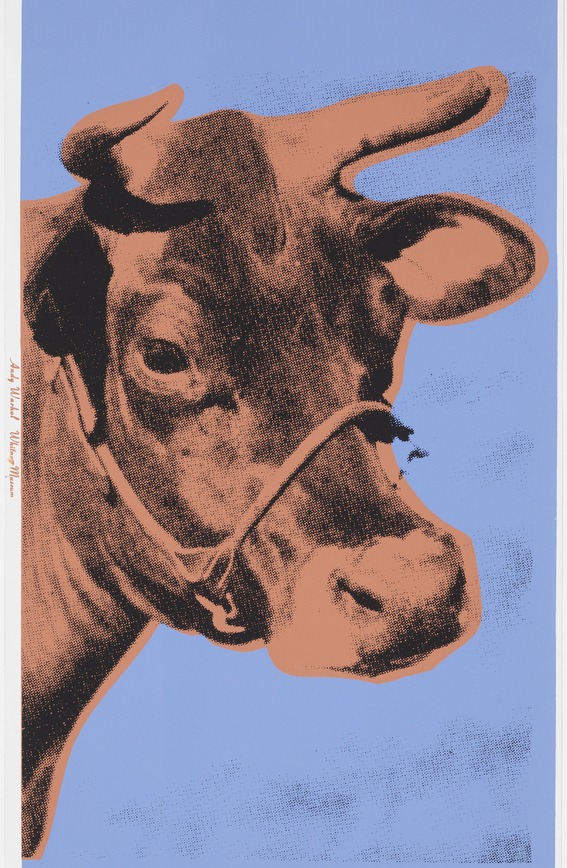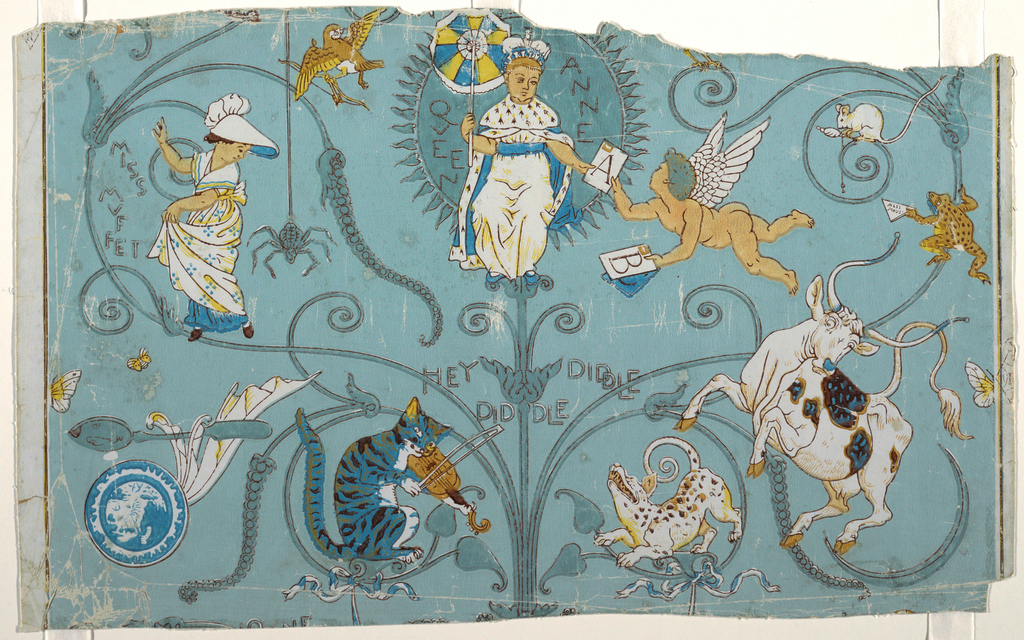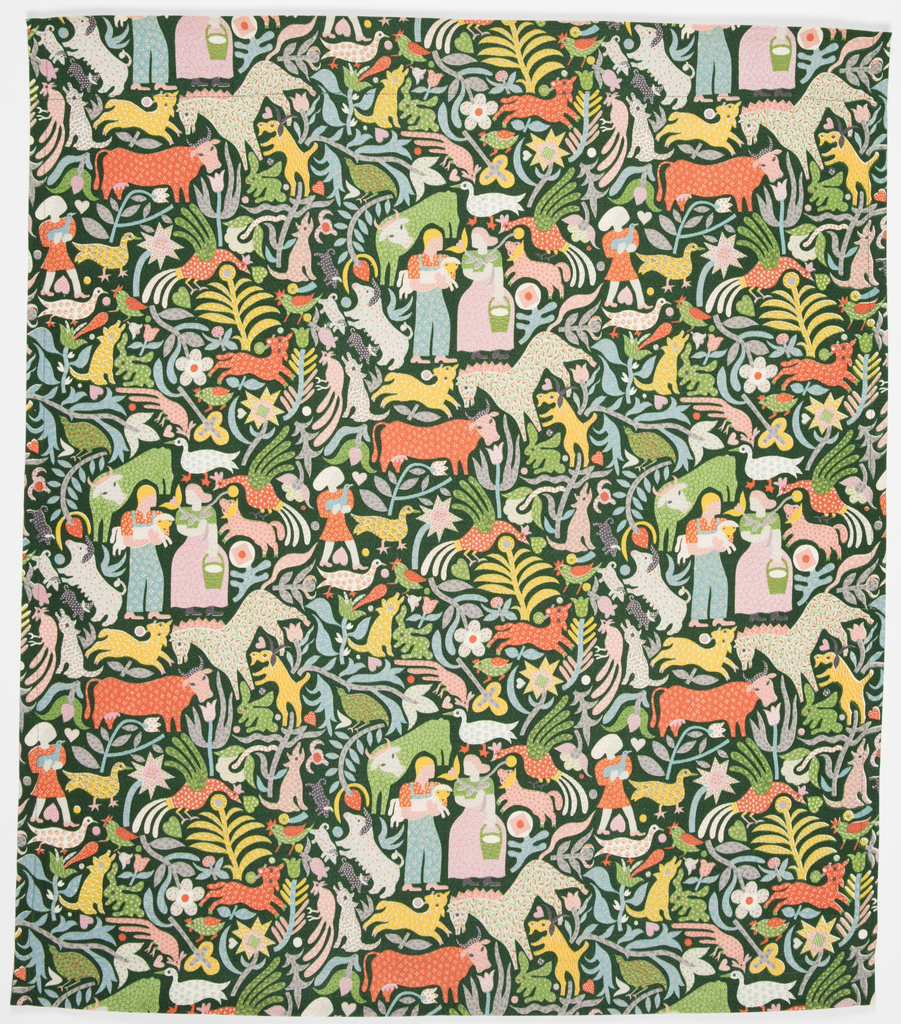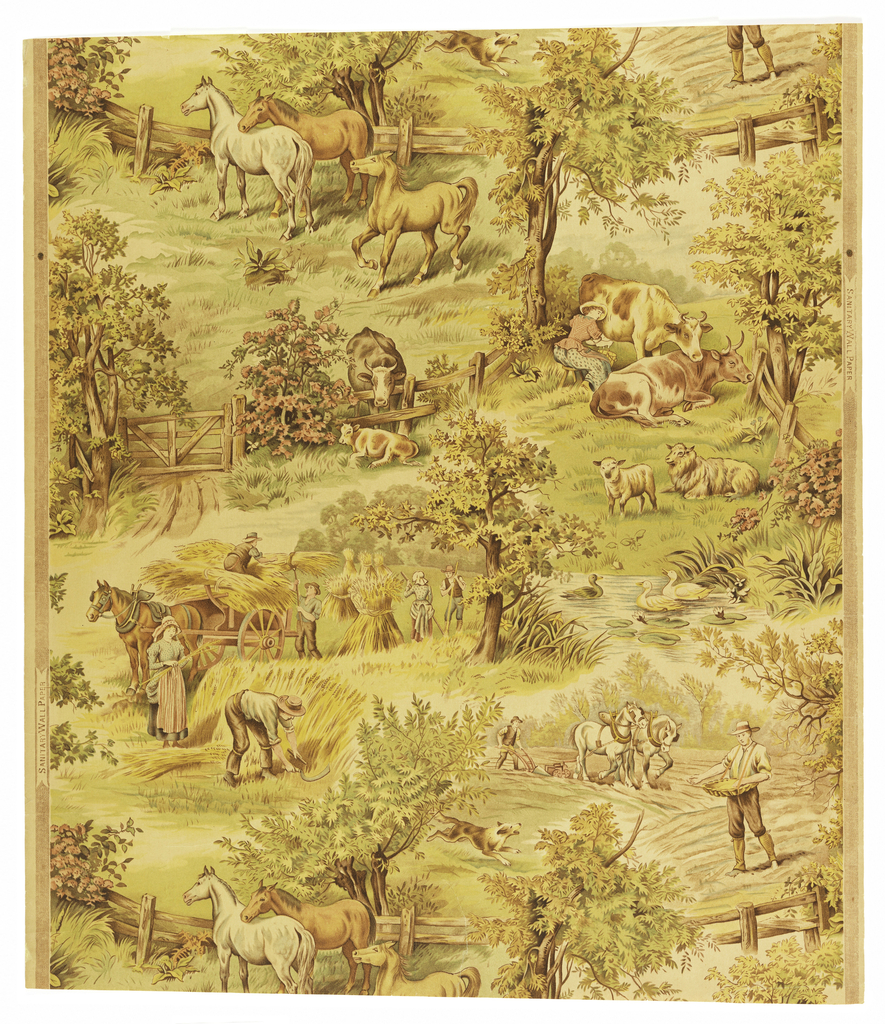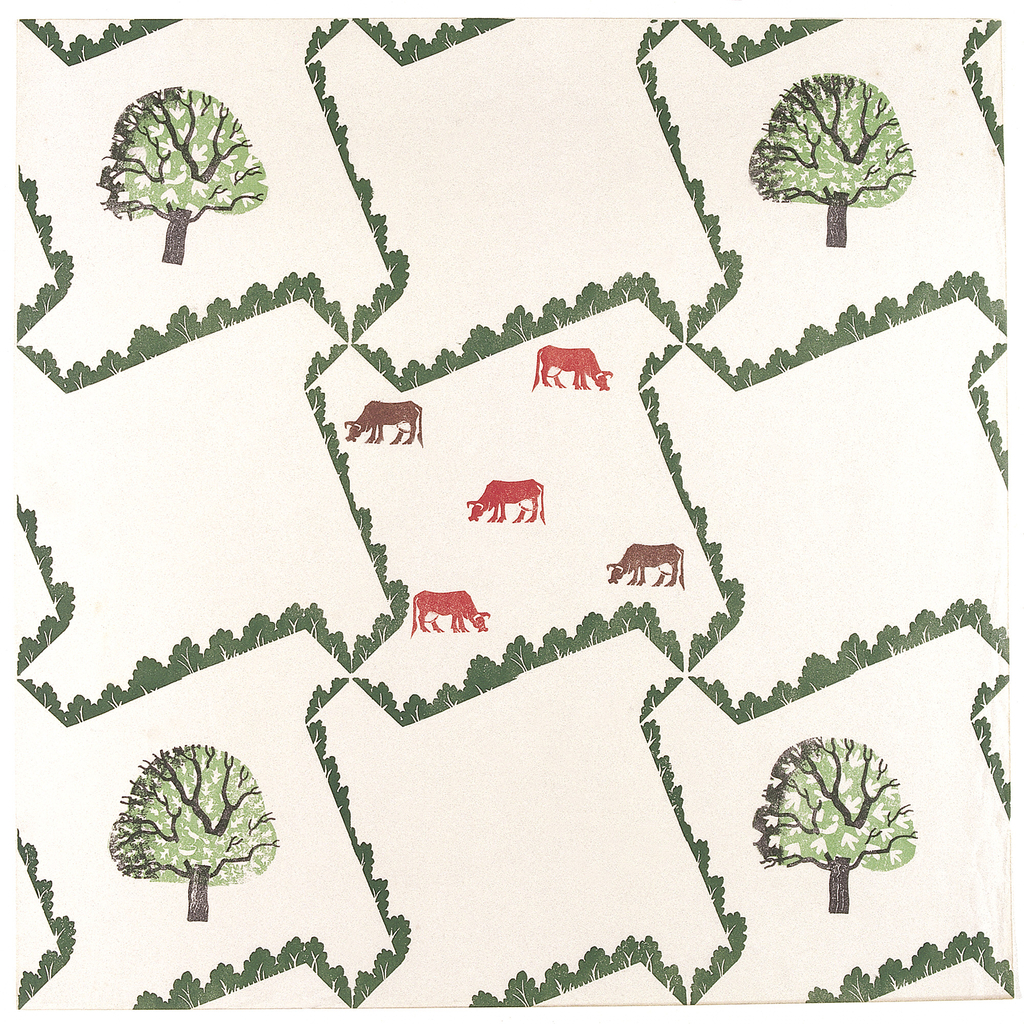This is a charming children’s wallpaper based on the Little Boy Blue nursery rhyme. The design contains three different vignettes, arranged in trefoil format, each one illustrating a different line from the verse. A cow is shown in the first view, two sheep in the next, while the little boy in blue is shown sound...
In celebration of World Pride, June Object of the Day posts highlight LGBTQ+ designers and design in the collection. I would have to give the honor of the most iconic wallpaper to Andy Warhol for his creation of Cow wallpaper. Cow was first shown at the Leo Castelli Gallery in New York in 1966, which...
Gazing at this carefully organized menagerie surrounded by creatures of all sorts and softly, scrolling vines, this wallpaper entices our eyes to flit from scene to scene. In one section, we notice a spider looming next to a small girl and in the next a mischievous cat plays a fiddle. As this continues, we slowly...
The issue of The New Yorker dated August 19, 1944 had a curiously wholesome cover. A farmer, holding a lamb, and his wife, armed with a bucket, were surrounded by farm animals and flowers. They were faceless and a bit flat, but expressive nonetheless, with the appearance of having been cut from bright calico cottons...
This charming landscape paper features various scenes of a busy yet peaceful farm. Views include harvesting and gathering wheat, a cow being milked, and a farmer plowing a field while another sows seeds. These are interspersed with scenes of ducks paddling in a brook, sheep lounging in a meadow, and horses frolicking in a pasture....
This French sidewall is machine-printed on a neutral ground and depicts a pastoral scene framed by leaves and vines. This type of wallpaper, called a “landscape figure,” originated in France and was extremely popular during the early nineteenth century. These formulaic patterns were composed of rows of two or three repeating vignettes with pastoral or...
Edward Bawden was a watercolorist, book illustrator, mural painter, and designer. He was inspired to design his first wallpaper after viewing the Daisy pattern by William Morris in an exhibition in 1925. Bawden’s preferred method of printing was the linoleum block at which he became quite adept. Harold Curwen, of the Curwen Press, saw some...
